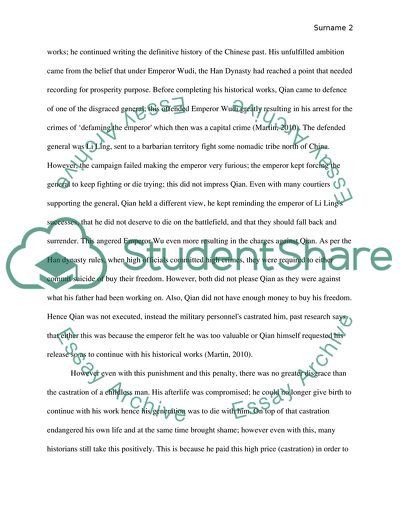Cite this document
(The Shiji - One of the Most Used Sources of Data about Ancient China Essay Example | Topics and Well Written Essays - 2750 words, n.d.)
The Shiji - One of the Most Used Sources of Data about Ancient China Essay Example | Topics and Well Written Essays - 2750 words. https://studentshare.org/history/1872101-sima-qian-a-great-historian
The Shiji - One of the Most Used Sources of Data about Ancient China Essay Example | Topics and Well Written Essays - 2750 words. https://studentshare.org/history/1872101-sima-qian-a-great-historian
(The Shiji - One of the Most Used Sources of Data about Ancient China Essay Example | Topics and Well Written Essays - 2750 Words)
The Shiji - One of the Most Used Sources of Data about Ancient China Essay Example | Topics and Well Written Essays - 2750 Words. https://studentshare.org/history/1872101-sima-qian-a-great-historian.
The Shiji - One of the Most Used Sources of Data about Ancient China Essay Example | Topics and Well Written Essays - 2750 Words. https://studentshare.org/history/1872101-sima-qian-a-great-historian.
“The Shiji - One of the Most Used Sources of Data about Ancient China Essay Example | Topics and Well Written Essays - 2750 Words”. https://studentshare.org/history/1872101-sima-qian-a-great-historian.


